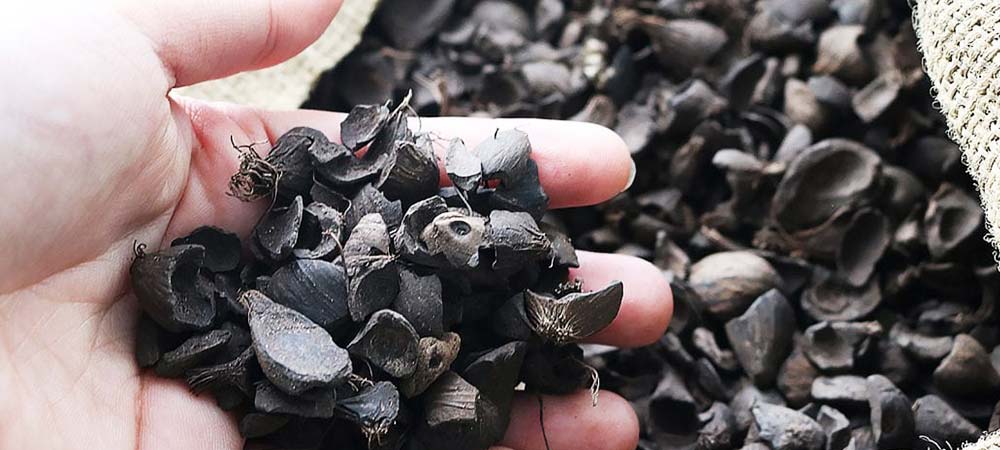The oil palm shell is an often overlooked but immensely versatile byproduct in the palm oil industry. Derived from the outer layer of the palm fruit’s kernel, this fibrous material holds significant potential for various applications, contributing to sustainable practices and diverse industries.
Understanding Palm Shell Composition
The palm shell constitutes an organic residue rich in lignocellulosic fibers, lignin, and traces of moisture. Its resilient composition endows it with structural strength and thermal stability, making it an ideal candidate for different utilization pathways. The palm kernel shell charcoal making machine can process palm kernel shell into valuable end products.

Energy Generation and Biomass Valorization
One of the primary applications of palm shell lies in energy production. Its high calorific value and low moisture content render it an excellent feedstock for biomass boilers and power plants. Through combustion or gasification, palm shell contributes to generating heat and electricity, providing an eco-friendly alternative to fossil fuels while minimizing waste.
Agricultural and Horticultural Utilization
In agriculture, palm shell emerges as an effective soil conditioner and mulching material. Its gradual decomposition enriches soil fertility by enhancing moisture retention and promoting aeration. Furthermore, as a mulching agent, it suppresses weed growth and regulates soil temperature, fostering optimal conditions for plant growth. Check the charcoal machine here.
Construction and Building Materials
The resilience and durability of palm shell find applications in the construction industry. When processed into concrete additives or incorporated into composite materials, it enhances structural integrity and provides thermal insulation. These eco-friendly building solutions reduce the reliance on conventional materials while minimizing environmental impact.
Innovative Bio-Based Products
Innovative research and development initiatives explore transforming palm shell into bio-based products with biochar making machine. Through pyrolysis or carbonization, it can yield biochar or activated carbon, crucial components in water purification, air filtration, or soil amendment. Moreover, its conversion into biodegradable plastics or as a filler in manufacturing processes contributes to sustainable product innovation.
Challenges and Sustainable Solutions
Despite its diverse applications, challenges persist in optimizing palm shell utilization. Issues such as transportation logistics, variations in palm shell quality, and scalability pose hurdles. However, ongoing research focuses on addressing these challenges through technological advancements and process innovations.
Environmental Impact and Conservation Efforts
Efforts to mitigate the environmental impact of palm shell involve sustainable waste management practices. Initiatives promoting proper disposal, recycling, and incorporation into circular economy models aim to reduce waste accumulation and limit ecological repercussions.
Conclusion
In conclusion, the multifaceted potential of oil palm shell extends beyond its classification as a byproduct. Its versatile applications across energy generation, agriculture, construction, and innovative bio-based products exemplify the essence of sustainable resource utilization. As technology advances and awareness grows, maximizing the value of palm shell not only contributes to economic growth but also fosters environmental stewardship, paving the way for a more sustainable future. More information on Beston Group.